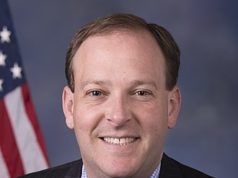Recently Passed Bill Maintains & Improves Existing HUD Section 202 Program
WASHINGTON, DC – December 22, 2010 – (RealEstateRama) — Congressman Charles B. Rangel applauded Congressional leaders Tuesday for passing a proposal that preserves and improves the Department of Housing and Urban Development’s (HUD) Section 202 Supportive Housing for the Elderly Program.
The federal program provides capital grants to non-profit community organizations for the development of supportive housing and provision of rental assistance exclusively for low-income seniors. Through such housing and supportive services, the program allows low-income seniors to remain safely in their homes.
“Nothing can be more terrifying, especially for those living on fixed income, than the thought of being thrown out on the street. Despite the slow economy, our nation’s seniors can rest assured that we are doing everything to ensure they can continue to live in their homes,” said Rangel. “By preserving this option of last resort, we are helping to keep entire communities together and prevent the burden of support to solely fall on states and cities.”
The House passed S.118 by voice vote after sailing through the Senate under unanimous consent this past weekend. Local Senators Chuck Schumer (D-NY), Kirsten Gillibrand (D-NY) and Bob Menendez (D-NJ) were among those who co-sponsored the measure and helped bring it over to the House.
“Thousands of seniors can thank the leadership of our local Congressional delegation for making sure that they have the options that they have so rightly earned,” said Rangel.
PROVING NEEDED RELIEF
The law will address the affordable senior housing shortage by:
-
- Making it easier for owners to refinance Section 202 developments, which may be in need of rehabilitation
- Providing greater flexibility to owners to transform unmarketable studio apartments into rentable one-bedroom units
- Establishing a new project-based rental assistance program for seniors at risk of losing rental housing due to rent increases after refinancing;
- Making it easier for owners to make health and supportive services available to residents through service-enriched housing.
According to Congressional data, over 300,000 seniors live in 6,000 Section 202 developments across the country, with ten seniors vying for each housing unit that becomes available. It is expected that approximately 730,000 additional senior housing units will be needed by 2020 in order to address the housing needs of low-income seniors.



